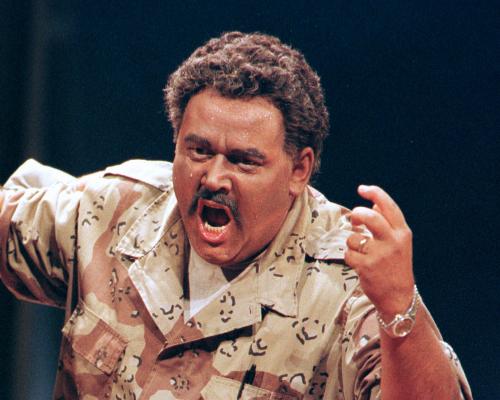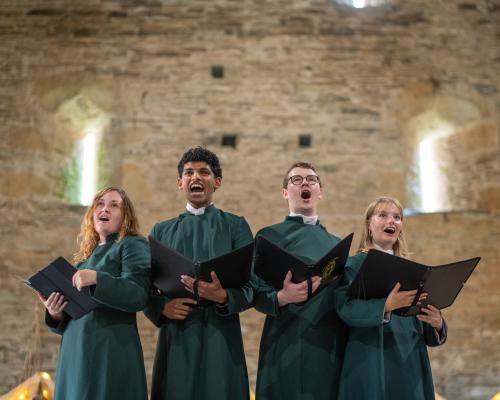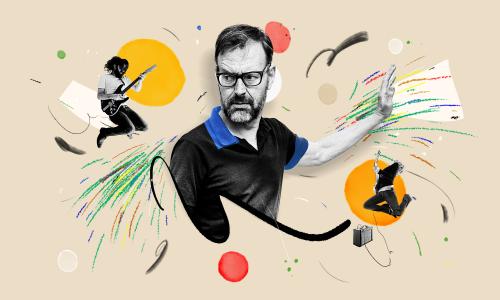
David Rendall, who has died aged 76, was a singer whose bronzed but mellifluous tenorial tones sustained a career lasting 30 years until it was shortened by an onstage accident. He enjoyed successful runs at the major British houses – Covent Garden, English National Opera and Glyndebourne – as well as the Metropolitan, New York, but he was also dogged by misfortune.
Progressing from lighter roles in Mozart and bel canto opera to weightier parts such as Don Alvaro in La Forza del Destino and Cavaradossi in Tosca, he finally attained the zenith of many a tenor’s aspirations, the title role in Otello, bringing to the part his characteristic combination of commanding tone, lyrical timbre and skilful phrasing. Of his performance at ENO in 1998, the critic of Opera magazine prophesied: “Given the right opportunities, Rendall’s Otello will surely bestride the world.”
He did indeed go on to sing Otello at La Scala and Dresden, as well as Glyndebourne in 2001 and again four years later, but it was also in 2005 that there occurred a disastrous stage malfunction in a performance of Aida at the Royal Danish Opera in Copenhagen. Sealed in the underground tomb in the final act, he became aware of the stage above going sideways instead of up, resulting in the destruction of the set. “I was knocked down at least 15 feet”, he recalled, “and tried to crawl to safety to avoid being crushed.”
The serious injuries he suffered required a hip replacement, with subsequent knee-joint replacement, and extensive shoulder surgery. His £250,000 claim for compensation against the theatre’s owners, the Danish Ministry of Culture, cited loss of earnings, on the basis that opera companies doubted his ability to achieve the same high standards as previously. He subsequently also sued the surgeon who performed the operation for using a controversial technique of “mixing and matching” hip replacement parts, seriously affecting his mobility.
The Copenhagen incident was not the first time Rendall had been in the headlines for the wrong reasons. At a performance of Pagliacci in Milwaukee in 1998, the blade of the prop knife his character Canio was using to stab his unfaithful wife Nedda and her lover Silvio failed to retract. The baritone playing Silvio, Kimm Julian, narrowly escaped a possibly mortal injury. A farcical element was added when the police who had been called to the scene confused the plot of the opera recounted to them with the real-life scenario, and came to believe that Rendall himself was seeking revenge for a marital infidelity. He was finally released without charge.
Rendall was born in London, the son of Phyllis (nee Tuffin), a nurse, and John Rendall, a stockbroker’s manager. As a teenager he was the vocalist of a covers band called All on Edge, but was working in the BBC’s gramophone library (as it was then called) when he was overheard by Roy Plomley and Ronald Cook, the presenter and producer of Desert Island Discs, singing Questa o quella (a castaway’s choice) from Rigoletto. Disapproving of the choice of singer, he had played the disc 10 to 12 times, by his own account, “learned the tune and a couple of the words”, went into the studio and put it down on tape.
So impressed were Plomley and Cook, listening in an adjacent room, that they made contact on his behalf with two London conservatoires. He was offered a bursary at the Royal Academy of Music.
His debut as a soloist was with Glyndebourne Touring Opera in 1975 as Ferrando in Così fan tutte. He graduated to the festival proper in the same role the following year, but was not to return until 1988 as Belmonte in Die Entführung aus dem Serail, followed by Tom Rakewell in The Rake’s Progress. Meanwhile at Covent Garden between 1975 and 1990, he sang such roles as Count Almaviva, Massenet’s Des Grieux, Matteo in Arabella and Rodrigo in La Donna del Lago, while at ENO between 1976 and 1992 he won acclaim as Leicester in Maria Stuarda, the Duke in Rigoletto, Rodolfo and Pinkerton. To all these roles he brought exemplary diction, an impressive legato line and a thrilling, though seemingly effortless, delivery.
He also flourished at the Met, making his debut there as Ernesto in Don Pasquale (1980) and returning for 10 seasons to sing six of the principal Mozart tenor roles as well as Matteo, Lensky and David in Die Meistersinger. Deciding, with his second wife, the mezzo-soprano Diana Montague, that they would focus their careers on the UK and Europe, in order to enjoy family life with their children, Rendall thereafter declined many offers from America and elsewhere.
In his enforced retirement he kept an entertaining blog retailing anecdotes from his life and career, including a temporary loss of sight after being struck on the temple by a singer playing Don Alfonso and an incident involving the New York police department when a dish of curry was emptied over the head of a restaurateur. The picture emerges of a colourful, combative character who, despite setbacks, lived life to the full.
He is survived by Diana, and their three children, Eleanor, Amelia and Huw, and by two children, Edward and Elizabeth, from his first marriage, to Kathryn George, which ended in divorce.
• David Rendall, tenor, born 11 October 1948; died 21 July 2025







